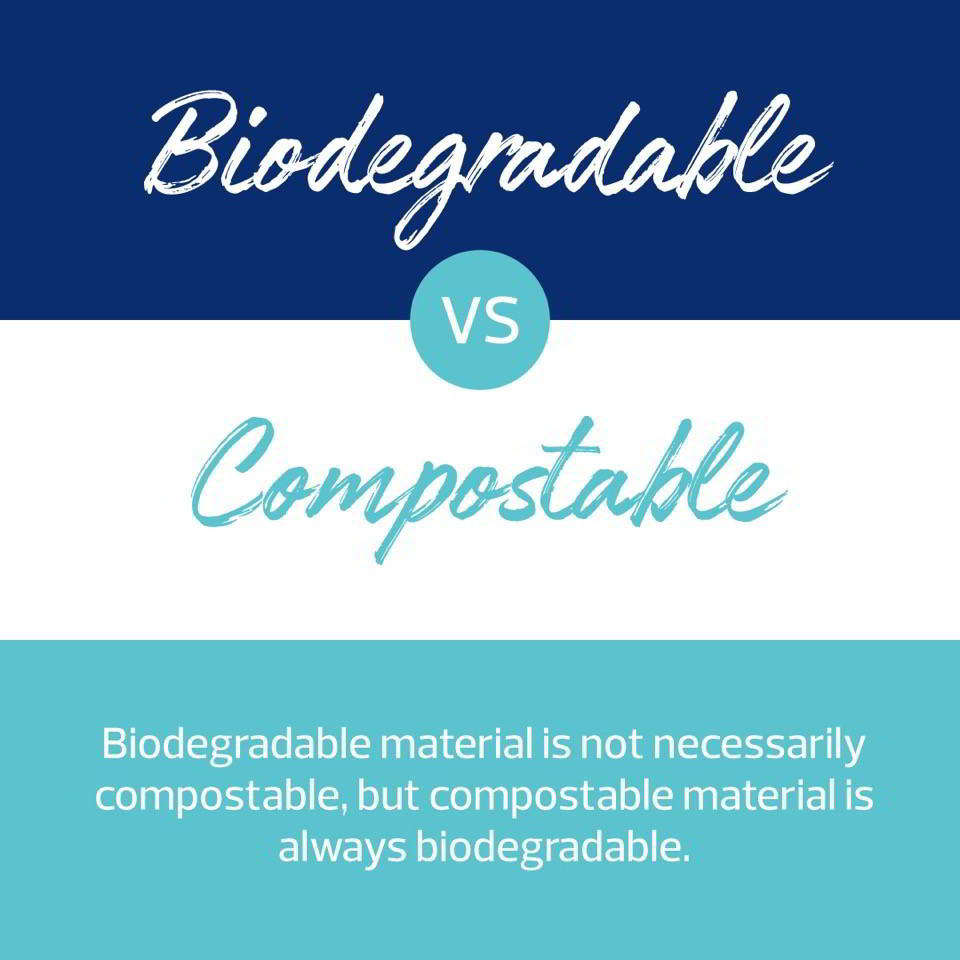Biodegradable
Describes what is degraded by micro-organisms naturally present in the environment, such as bacteria, fungi and algae. There is no reference to the time required for degradation or the physical and chemical qualities of the final product. Biodegradable products are those that are capable of being decomposed with the help of bacteria and other organisms. As compared to non-biodegradable products, they do not require any use of chemicals for decomposition, hence, they are less environmentally damaging. If something is biodegradable, it is also capable of decomposing back into natural elements. However, it can take a very long time and is totally dependent on the temperature and the amount of moisture present.
Compostable
Describes what is biologically degraded during composting, producing CO2, water, inorganic compounds and biomass at a rate comparable to that of other known organic materials, and generating no visible, recognizable or toxic residues. If something is compostable, it is capable of decomposing back into natural elements, but it also depends on compostable conditions, the time it takes for a break-up, and the product itself. They are products that provide nutrients to the soil and have the least environmental impact.
A paper bag is not only biodegradable, it is also compostable; a biodegradable plastic bag, however, is not necessarily compostable. Therefore, a biodegradable material is not necessarily compostable, but a compostable material is always biodegradable.




